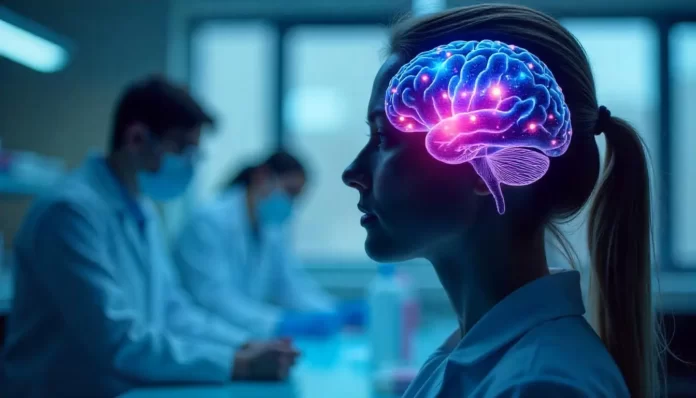A groundbreaking study from Mass General Brigham has unveiled a previously unknown connection between the immune system and the brain’s fear response. The research suggests that psychedelics, such as psilocybin and MDMA, can interfere with this link, potentially leading to innovative treatments for mental health conditions like depression and anxiety.
Immune Cells and the Brain’s Fear Center
Traditionally, the amygdala, a region deep within the brain, has been recognized as the central hub for processing fear and anxiety. However, this new study indicates that the immune system plays a more active role than previously thought. Under chronic stress, the body dispatches inflammatory cells known as monocytes to the brain’s protective layers, the meninges. These monocytes then influence the amygdala, amplifying fear responses and promoting inflammation.
“When chronic stress disrupts this signaling, it leads to a cascade involving brain-resident cells and immune cells that ultimately increases fear behavior,” explained Dr. Michael Wheeler, the study’s lead author. “What is fascinating is that psychedelic compounds can reverse this entire process.”
Psychedelics Blocking the Fear Pathway
In experiments with mice subjected to chronic stress, treatments with psilocybin and MDMA effectively prevented the accumulation of monocytes in the brain. This intervention not only reduced inflammation but also diminished fear-related behaviors in the animals.
Further analysis revealed similar patterns in human brain cells and gene expression data from patients with major depressive disorder (MDD), suggesting that these findings could have broader implications for human mental health.
Potential for New Treatments
The discovery that psychedelics can modulate the interaction between the immune system and brain function opens up new avenues for treating conditions characterized by chronic stress and inflammation. While psychedelics are not being proposed as a universal cure, their ability to target specific tissue responses offers promising therapeutic potential.
“Our study underscores how psychedelics can do more than just change perception; they can help dial down inflammation and reset brain-immune interactions,” noted Dr. Wheeler. “This could reshape how we think about treatment for inflammatory disorders and conditions like anxiety and depression.”
Next Steps in Research
Building on these findings, the research team plans to investigate the long-term effects of psychedelic treatments on patients with inflammatory diseases or MDD. This will involve analyzing tissue samples from participants in ongoing clinical trials where psychedelics are being used as part of depression treatment protocols.


